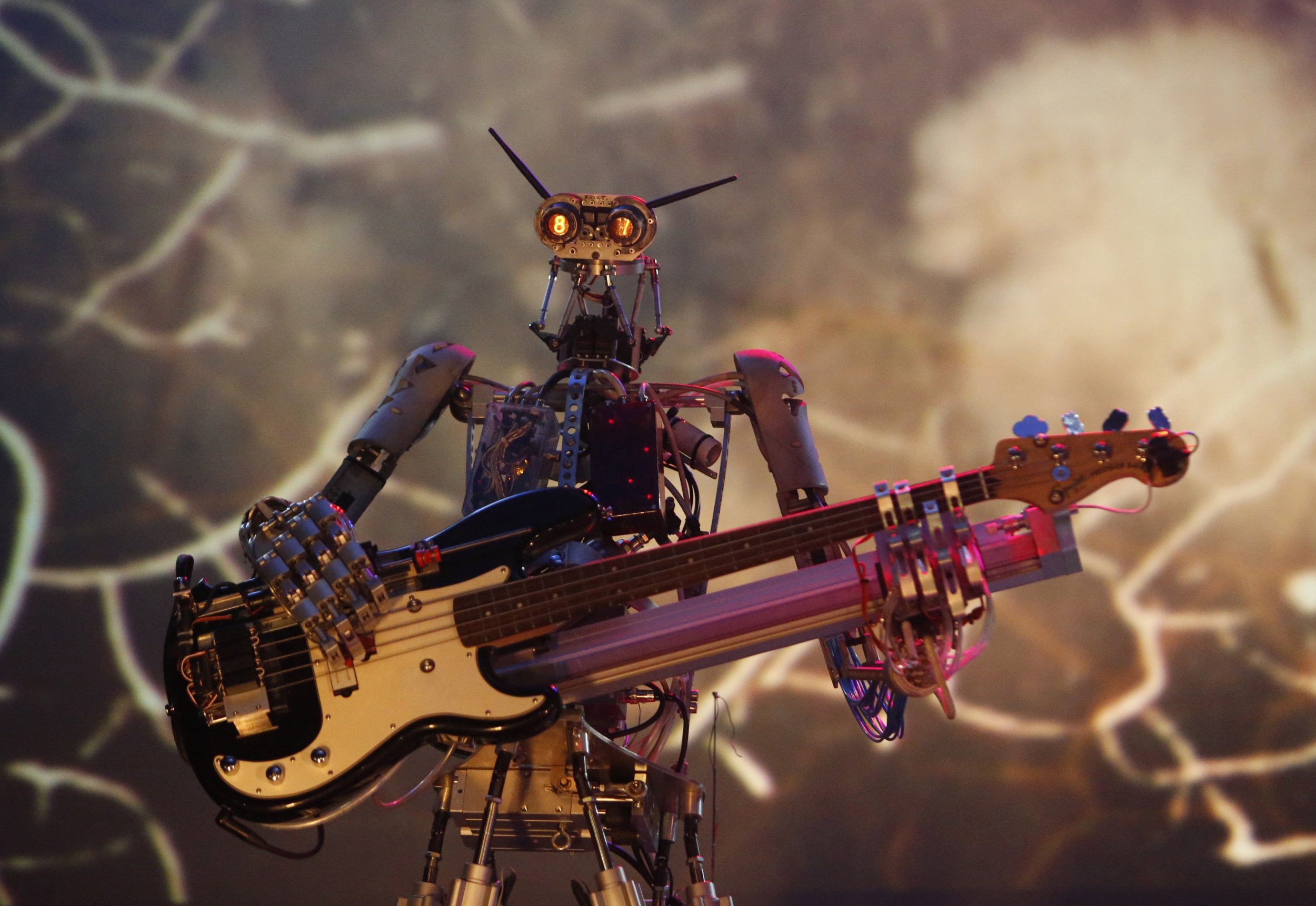
The human first plays a short tune, and the computer follows up with a longer variation of the tune. Is the computer-generated melody an original piece of music? Is it art?
At the music and technology festival Moogfest in Durham, North Carolina, Google researchers were onstage to put those questions to the test. Adam Roberts, one of the researchers in a group called Magenta, demonstrated a digital synthesizer program. Its artificial intelligence would listen to the notes Roberts played and play back a longer melody, according to Quartz, which attended the meeting. Magenta hopes to find out if artificial intelligence can be trained to create original pieces of music, art or video.
If Magenta succeeds, it brings into question whether the program's creation can be considered a piece of art like society deems works by Beethoven, Picasso or Spielberg. The question has been repeatedly asked over the past decades, regarding AI-induced artwork such as the colorful paintings by Aaron—a computer about 40 years old—and psychedelic-looking "dream" paintings from Google's artificial neural networks.
In April, Microsoft and Dutch cultural institutions revealed a 3-D printed "Rembrandt" painting, produced by an AI program assigned to create the most typical piece in the 17th-century Dutch artist's oeuvre. Critics weren't kind, and many challenged whether it could be considered a piece of art.
Mark Milloff, a noted painter and art professor at the Rhode Island College of Design, is one of the critics of the program's painting of a Rembrandt because it copied the work of a dead artist. "For me, that's just a technological trick," Milloff tells Newsweek. "That is the result of science people trying to quantify art."
But did Magenta create an original work of art with the synthesizer melody at Moogfest? Milloff says yes, but adds that the humans were the ultimate artists. Milloff says the whole question of whether it's art was wrongly framed, and such questions are rarely debated within the art community.
"If AI is creating algorithmic art, all that needs to be asked is how most people talk about music: There's only good music and bad music," Milloff says. "It's humans who create the AI, so it's not like this came down from on high above. This isn't like the art when I was a kid, but I'm open to it."
Ali Momeni, an associate professor of art at Carnegie Mellon University who frequently uses technology to explore themes in his artwork, says Magenta is just the latest in a long line of innovators to challenge assumptions about art. Momeni sees the new AI-driven art as a progeny to the 20th-century artistic traditions forged by Marcel Duchamp and Jackson Pollock in pushing the boundaries of what art is. "I think you would be naïve to say this was invented by Google," Momeni tells Newsweek.
Momeni believes fear drives a lot of skepticism in the art community toward robots and AI. Much like the fears of automation taking away industrial jobs from humans, artists are afraid that graphic design will eventually be done by computers.
But for other art intellectuals, there are fundamental differences between the work of humans and robots that cannot be bridged. Masha Ryskin, who, like Milloff, is a painter and teaches at the Rhode Island School of Design, emphasized intent as the decider between whether AI can create art or not. Until AI can be sentient enough to state why it is making art without human intervention, Ryskin saw it as a mere tool for human artists.
"I don't consider the robot to be the artist, like how I don't consider the chimp as an artist. The robots can be used by artists to make art, however," Ryskin says. "Is it art if you have an idea but have a robot do the whole thing? That's absolutely art because of the human intent."
Douglas Eck, a member of the Magenta team, tells Quartz its programs will likely involve human intervention for the foreseeable future since robots are not yet totally creatively independent. His intent of Magenta is to give its listeners "musical chills" as they listen to AI-created pieces of music.
Momeni welcomed Eck's intent with open arms, saying innovations in AI-created artworks have made art more accessible to the layman than ever before. "We're in a very special time. Magenta and the likes have been getting a lot of attention over the past 40 to 50 years, and it's finally getting approachable for average people," Momeni says. "My personal response is that, sure, let's call this a new art."
Uncommon Knowledge
Newsweek is committed to challenging conventional wisdom and finding connections in the search for common ground.
Newsweek is committed to challenging conventional wisdom and finding connections in the search for common ground.
About the writer
Seung Lee is a San Francisco-based staff writer at Newsweek, who focuses on consumer technology. He has previously worked at the ... Read more
To read how Newsweek uses AI as a newsroom tool, Click here.








